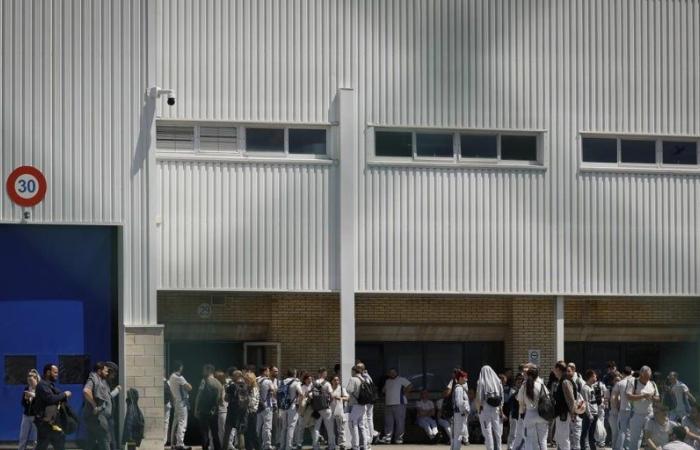Red Eléctrica de España has entrusted by law the critical function of “guaranteeing the continuity and safety of the electricity supply and the correct coordination of the production and transport system” of electricity and, yet the president of the Government was off the … last Tuesday with severe statements that seemed impute private operators The ultimate responsibility of the episode that left Spain without electricity supply for between four and 18 hours between Monday and Tuesday.
Beyond the never disposable political calculations, Pedro Sánchez’s positioning opened the range of possible responsibilities For the event, which in the early hours after the incident were exclusively concentrated in the network manager controlled by the SEPI.
The matter is far from irrelevant. The determination of responsibilities for the blackout will be the critical factor that will determine who or who will take charge Of the possibly millionaire compensation, whose demand affected companies have already begun to process their lawyers or legal advisors.
Alberto Dorrego, partner of the Department of Public Law of the Office Eversheds Sutherland, admits that They have already received affected consultations in relation to the possibility of claiming the compensation of the losses generated by the blackout. “The first thing to determine is the origin of the incident, if it has been due to an unpredictable or inevitable event, which is identified with a cause of force majeure, or if on the contrary it has been due to a breakdown or negligence.” If it were this last case, which is where they seem to point the signs with happiness by the Government to date, the door to the requirement of compensation would be open; If on the contrary the event had originated by a cause of force majeure the road would be more complex.
Dorrego recalls that claims claims to the state raised during the pandemic were rejected massively precisely because of this factor, because it was an unpredictable and inevitable event.
Manuel Lamela, founding partner of the Office of the Office, who managed the claims of several sectors against the State for the damage caused to thousands of businesses for the decrees of restriction of the activity and mobility in the pandemic, warns that the courts have sat the controversial principle that In cases of force majeure those affected have the obligation to withstand the damage.
If it is confirmed as it seems that the blackout was due to a system failure and not to an exogenous factor, the wave of demands is guaranteed.
The uncertain involvement of the State
The question is: against whom? «The legal response is that The real responsible for the damage produced must be suedthat it is not always easy to determine because in these types of cases it is not strange that there are several responsible and we must determine what part corresponds to each one, ”warns Alberto Dorrego. “Therefore until there is clarity about the origin of the damage there will be no demands,” he clarifies.
There is also a handful of factors that can influence processes. To start the Compensations received from insurance. There will be companies that have insured the contingency of a blackout and receive compensation for the insurance that covers their damage. In those cases it will probably be the insurers who will sue the person responsible or responsible for the incident to recover the subscriber.
It is also the possibility that those affected go against their electricity company, as an energy supplier, and that then these have to claim the ultimate person in charge of the event the possible compensation that may have to assume in the first instance.
What is not so clear is if those affected may Invoke State’s patrimonial responsibility as possible ultimate responsible for the operation of the electrical system. For Julio González, Professor of Administrative Law of the Complutense University of Madrid, it is a matter of private law, which in no case will imply the State. «The responsibility is private law and will not be from the State. The electrical system is privatized since 1997 and no system actor is part of the public sector: neither in production, in transport, nor in distribution nor in commercialization ».
Other sources consulted are not so taxative and emphasize that in the event that it is determined that the person in charge is Red Electric, since it has entrusted by exclusive law, the management of the network could be understood that this legal attribution and the administrative limitations imposed on it could encourage the existence of a state responsibility.
A millionaire cause
On the table, millionaire compensation. CEOE estimated at 1.6 billion euros the damage caused by the blackout to the business fabric, and although the Ministry of Economy challenged on Wednesday that estimate with its own calculation that concludes that at most that damage will be 800 million euros, it is about figures that may stress to the limit the accounts of anyone to which it is indicated as responsible for the blackout.
Manuel Lamela remembers that compensation are not limited to direct damage (Inquirized machinery, lost stocks, billing fall) but also to the loss of profit, more difficult to accredit but existing.






